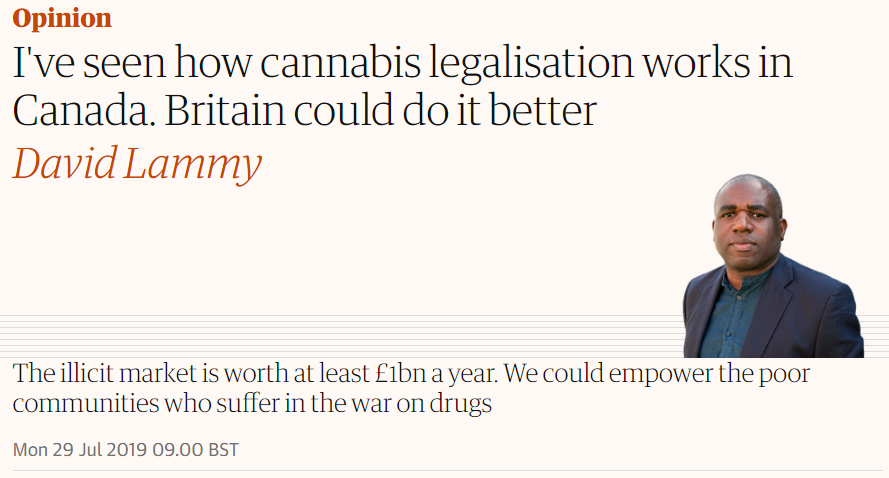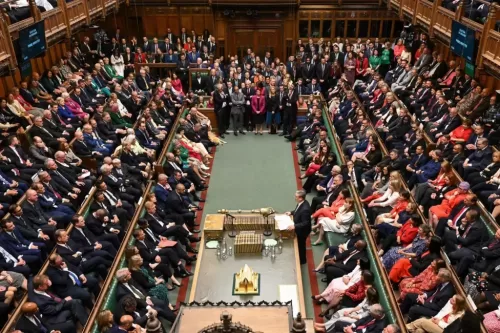4th July 2024
As the Conservative government departs after 14 years of largely disastrous drug policy management in the UK, few tears will be shed in drug policy circles. Outcomes have been generally terrible; Drugs-related deaths have doubled, illegal drugs are cheaper and stronger than ever before, drug markets have become more violent and exploitative, prisons are overflowing, and pressures on underfunded drug services are reaching breaking point.
Even the few more useful things they have done, have been half-hearted and underwhelming. The welcome uptick in funding for drug services following the Black report barely covered the cuts the government had itself made in previous years. Cannabis was rescheduled, effectively legalising it for medical use - although not yet on the NHS, dramatically limiting access. The roll out of diversion programs has been a positive step, as arguably was the no sanction for possession model built into Psychoactive substances act of 2016 - even if in both cases the nominal reforms were dressed up in tabloid drug war rhetoric.
Elsewhere it’s been an unrelentingly grim mix of drug war posturing, negligence, and denial. Debate on progressive policy and law reform has been completely shut down, despite accelerating progress around the world. And, even in the face of an unprecedented drug death crisis, policy has been defined by a profound hostility to evidence based harm reduction measures proven to save lives.
Room for optimism with the new Government?
One hopes that things can, indeed, only get better. Yet the previous Labour government had an almost equally dismal record on drug policy, and has been consistently weak in opposition. Concerningly, despite the urgency of the still-worsening overdose crisis - the drugs issue has barely featured in the election debate for Labour or Conservatives, with ‘tough on law and order’ showboating the preferred default.
So what can we expect from the new Labour Government? The lack of drug debate in the election may ultimately prove useful, as the government has not been pinned down on what they plan to do, perhaps giving them a little more room for manoeuvre. Starmer has hedged on the decriminalisation issue, but Labour has been moderately supportive of diversion, a form of de facto ‘decrim lite’. They’ve also said they won't get in the way of the rollout of overdose prevention centres, and there is a reasonable hope they will be more open to pragmatic harm reduction interventions, including drug checking services and innovative prescribing such as heroin assisted therapy.
Misplaced fears of a reactionary backlash to innovative harm reduction clearly held back the last government. But with a huge majority, time on their hands, and evidence on their side, there is a real window of opportunity for the new government to do something more bold in response to the growing drug death crisis. Transform and many others in the public health space will be advocating for precisely this.
With the parlous state of public finances, however, the government doesn’t have lots of money to fund new services. The concern is that drug services could be a low priority, and get caught in the austerity drag net - even if only in the short term. A challenge for the drug field will be making an economic case for drug service funding and wider policy reforms (proven to save on criminal justice system and downstream health costs), as well as wider public health and social justice arguments.
On the criminal justice front early signs have been mixed. The appointment of a high profile prison reform advocate as Prisons minister gives some room for optimism (at least that they won't be veering towards lock em up populism). But they have also announced a new law on child exploitation by drug dealers as part of a ‘crime crackdown’. The details of this new law are yet to be announced, but it looks a lot like performative law making - criminalising something that is already criminalised.
In terms of the make-up of the new Government, while Starmer has shown little interest in drug issues since becoming leader (or indeed, ever), there are a few of the new ministers who have been more engaged. Most notable is the new Foreign Secretary, David Lammy whose Independent review into the treatment of, and outcomes for Black, Asian and Minority Ethnic individuals in the criminal justice system showed a nuanced understanding of racial discrimination in enforcement of the drug laws. In 2019 Lammy was actively engaged in advocacy for cannabis legalisation that prioritised equity and social justice - visiting legal cannabis facilities in Canada and penning a pro reform oped in the Guardian.

Elsewhere in Labour, drug reform is moving forward. The (Labour) London Mayor Sadiq Khan's cannabis commission, is exploring cannabis reforms including decrim and regulation - and set to report later this year. There are also over 200 new Labour MPs - some of whom are certain to be reform champions, able to strengthen the Labour drug policy reform grouping.
What of the opposition?
The opposition will be critical to scrutinising Labour drug policy in the coming months, ensuring that their rhetorical commitments to evidence based policy, public health and social justice are not overwhelmed by populist instincts. It seems unlikely that the conservatives, who now lead the opposition, will decide to campaign for pragmatic drug policy reform, so attention will inevitably shift to smaller opposition parties. The Lib Dems have a record 72 seats to become the biggest third party in recent history and have long advocated for pragmatic harm reduction, decriminalisation of possession, and regulation of cannabis (Transform helped develop their cannabis policy, chairing an independent expert group that made recommendations - later adopted as party policy). And while the lib Dems seem set to lead the push for drug reform in the new Parliament, they will not be alone. The Greens went from 1 to 4 MPs and have an even more progressive drug policy platform that includes regulation of all drugs (Transform also fed into development of the Greens’ policy).
The SNP have been useful advocates of pragmatic drug reform, even if delivery in Scotland has been underwhelming, often stymied by legal constraints imposed from Westminster. As drug related deaths have continued to rise to new records, they have pushed for decriminalisation & innovative harm reduction interventions, including OPCs and drug checking. The SNP controlled Scottish Government’s vision for the future of Scottish drug policy included a groundbreaking exploration of regulation. SNP MP numbers have, however, been drastically reduced (from 48 to 9) in Westminster, so they will be a much diminished voice - not least with the loss of long time drug reform champions Ronnie Cowan, Alison Thewlis, and Tommy Sheppard.
Other smaller parties have fared better. Plaid Cymru, with 4 MPs, have a more pragmatic position on drugs, as do Sinn Fein, with 7 MPs (although they abstain from participating in Westminster).

Looking to the future
It would be naive to think the new Government is going to make a dramatic pivot towards a pragmatic drug reform platform - but there are a number of areas where positive steps seem more than distant possibilities.
Labour support for diversion suggests a move to more comprehensive decriminalisation of possession - as an enabler of a much needed public health response - is a realistic goal. The fact that such a move is being increasingly widely implemented around the world, and is supported by leading UK health bodies, and the UN’s leading health and Human rights bodies, will only add to the pressure.
The overdose crisis is continuing to worsen, with the spectre of synthetic opioids threatening to dramatically worsen an already grim landscape. The need to evolve, expand and fund UK harm reduction provision - including national roll out of supervised consumption facilities, drug checking services and innovative prescribing regimes - has never been more urgent. While Labour seems less hostile to harm reduction than their predecessors, it is important that they move rapidly. We are playing catch up and lives are at stake. A concerted effort from across the drugs field will be required to make this happen.
The new government is facing a prisons overcrowding crisis, but clearly has no desire to shovel billions into expanding the prison estate, even if some spending to upgrade the crumbling Victorian infrastructure seems inevitable. There is clearly an opportunity here to make long overdue progress on prison reform, promoting sentencing reform and alternatives to custody. Most obviously, system wide drug policy and law reform is needed, beginning with an acknowledgment that punitive drug enforcement is a driver of so much of the crime and offending fueling the prisons crisis. Investing in support, rather than punishment, makes sense from health, criminal justice, and economic perspectives.
And finally regarding cannabis reform, a number of factors are aligning to make change seem increasingly likely; Public opinion is nearing or has exceeded majority support for legalisation; reforms in Europe and around the world are normalising the public debate by demonstrating they work; reforms of medical cannabis, whilst agonising slow, has also been largely problem free and helped prepare the ground; the potential economic benefits of cannabis regulation (both on CJS saving and a potential billion pound+ annual tax windfall) are looking increasingly attractive to a cash strapped Treasury; AND a sustained high level campaign push for cannabis legalisation in the UK will be a centrepiece of Transform's work in the coming months.
We need your help
With over 300 new MPs, including over 200 new MPs on the Labour government benches, one of the most important things you can do is contact your local MP, to help inform the debate and build support across parliament. New MPs in particular need to know that drug reform is a key concern for their constituents. Follow our guide here




